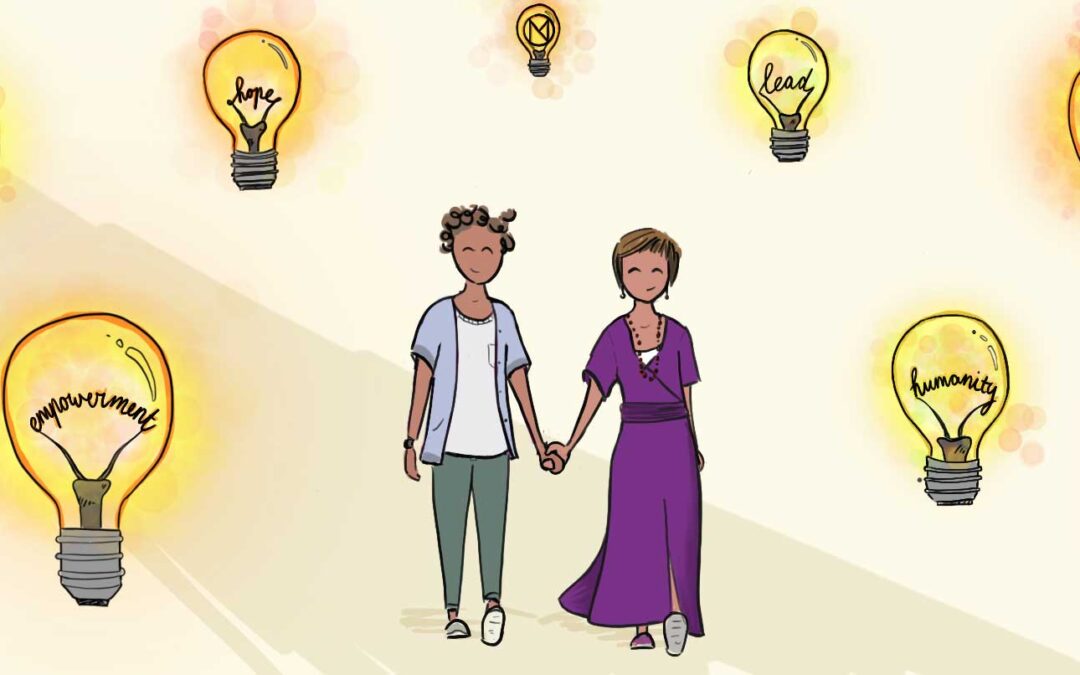image by Marieke VaNoon
Social justice organisations stand for some extremely important values: they work tirelessly to promote equality, non-discrimination, fairness, respect for dignity, humanity, transparency, justice and accountability. As a leader working in social justice spaces, I’ve been committed to the important work of social justice organisations for over 25 years.
Yet, I’ve also spoken up about some of the internal challenges that our organisations face and the dark side of human rights organisational culture. I’ve written about the unhealthy “tough up or get out” mentality as well as non-profit martyrdom culture. I’ve highlighted the leadership challenges and the toxicity and bullying within some teams. I’ve even evidenced the epidemic of burn out, stress and trauma among human rights workers and called attention to situations where people are harassed and discriminated against at social justice organisations. And while I’ve highlighted these challenges, I’ve also supported hundreds of social justice professionals as they navigate toxic working environments serving as a social justice leadership coach.
What do our organisational challenges have to do with human rights values?
What the dark side of human rights organisational culture reveals is a values vacuum: that is, some organisations are failing to practice internally the values that they are advocating externally. Yes, that’s right — sometimes we don’t walk our own human rights values talk!
It’s a rather ironic situation when, for example, we call upon others to practice non-discrimination and respect for dignity, but don’t put these values into practice in the way we treat our staff. And the result? Sadly, a values vacuum leads to unhappy, demoralised, and in the worst cases, damaged people and organisations that are ultimately not as effective as they should be at delivering on their mandates.
What can we do to address this values vacuum? How can we put the “human” back into human rights work?
Since leaders mould organisational culture, a key step is investment in the human rights leadership pipeline.
Many of our leaders are outstanding substance matter experts who have risen though the ranks — but they’ve often received little or no management or leadership training or support. We need to change that!
Leaders hold the key to building healthier organisational cultures and people. We need to invest in the professional development of our leaders and give them supportive spaces to explore how they can translate our shared human rights values into practice inside our organisations.
I am privileged to support some incredible leaders who prove that it is possible to live human rights values in the processes that we use, including workflows, organisational policies, decision-making methods and the ways in which we treat people. Leaders that do this are practicing what I call a human rights values-based approach to leadership.
What is a human rights values-based approach to leadership?
I developed the human rights values-based approach working with leaders in social justice spaces and building upon over a decade of work on the ethical responsibilities of human rights NGOs.
A human rights values-based approach to leadership is based upon the fundamental idea that human rights is just as much a process as it is an outcome. It is a leadership approach that is grounded in our common, shared core values that flow from international human rights standards; they are, after all, what motivate us to do what we do and are our raison d’être. It makes sense to place these important values at the heart of our leadership approach.
When we draw upon our human rights values for inspiration, guidance and direction — mindfully placing these values at the core of our leadership style — we are practicing a human rights values-based approach to leadership.
Our shared core values — including equality, non-discrimination, fairness, respect for dignity, humanity, transparency, justice and accountability — translate into specific practical responsibilities. For example, our values guide how we manage and treat our staff, interact with our stakeholders, make decisions, communicate and govern our organisations.
Leaders that embrace a human rights values-based approach contribute to the creation of healthier, happier and more professional organisational cultures and people who are better placed to bring about impactful social change.
How can I practice a human rights values-based approach?
If you’ve read this far and are still curious about how you can practice a human rights values-based approach to leadership, try this: take a piece of paper and simply list as many human rights values as you can. Now, pause for a moment and reflect. How can you put these values into practice in your organisation? In the ways in which you lead? In the ways you manage others? In your decision-making processes? In your relationships with your stakeholders — those people you claim to represent or advocate for? In your organisational policies? In your workflows?
If you would like to dive deeper into a human rights values-based approach and take your leadership ability to the next level, the Human Rights Leadership Lab is for you!
What is the Human Rights Leadership Lab?
The Human Rights Leadership Lab offers you 24 hours of professional leadership development training with like-minded peers over six weeks. It is a training specifically tailored to the leadership challenges and needs of people working in social justice spaces.
You can find out more about the Leadership Lab here. Or, if you have questions, please reach out to me here.
And please feel free to let me know what you think in the comments below!
Liz Griffin is a Social Justice Leadership Coach and Mentor who supports social and climate justice activists, professionals and organisations to do more impactful and values-aligned work and lead well. She is the creator and convener of the Human Rights Leadership Lab.
Liz is also an Extraordinary Lecturer at the Centre for Human Rights, University of Pretoria (South Africa) and a Fellow at the Human Rights Centre and Armed Conflict and Crisis Hub, University of Essex (UK). She has over 25 years of experience as a leader working for the UN and NGOs as well as at universities, rising to the level of professor of international human rights law.
Liz is an International Coaching Federation accredited Professional Certified Coach (PCC) and Senior Yoga Alliance Professional with over 3000 hours of leadership coaching under her belt. She is also a partner of the Human Rights Resilience Project. You can find out more about Liz here.


Liz, this is the first article I’ve read that promoted the use of a Human-Rights Approach style of leader. I find it surprising that I have not heard about it before. I plan on diving deep into this content. Thank you for sharing!